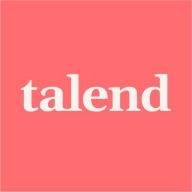

MuleSoft Anypoint Platform and Talend Data Integration compete in the data integration solutions category. Based on user feedback, MuleSoft seems to have the upper hand for larger enterprises with its API-led model promising substantial ROI, while Talend is favored for its cost-effective pricing, appealing to smaller businesses.
Features: MuleSoft Anypoint Platform offers a robust API management capability, a user-friendly graphical interface for visual integrations, and strong monitoring and alerting features through its API-led connectivity model. Talend Data Integration provides extensive automation and scheduling capabilities, efficient code and package generation, and a rich library of components for connecting to various data sources.
Room for Improvement: MuleSoft could enhance its pricing to be more attractive to smaller businesses, improve ease of development for less technical users, and expand its DevOps integration. Talend Data Integration may benefit from enhancing its cloud-based upgrade processes, increasing scalability for larger enterprises, and simplifying its interface for non-technical users.
Ease of Deployment and Customer Service: MuleSoft Anypoint Platform is praised for its straightforward setup, high scalability, and responsive technical support, especially at premium levels. Talend Data Integration also offers ease of use with its drag-and-drop interface, standard collaborative development practices, and support for multiple environments, ensuring stable and reliable integrations.
Pricing and ROI: MuleSoft's pricing is considered higher, best suited for larger enterprises seeking premium features, but it delivers significant ROI by lowering maintenance costs and boosting innovation. Talend is sought after for its affordable pricing that offers practical scalability, although costs increase with the need for more tokens for advanced functionalities. Both platforms provide strong ROI through their integration capabilities.
It has helped us save a lot of time by automating repetitive data processes and reducing manual interventions.
They didn't want to use separate ETL tools for MDM or for TMC and data preparation, which is all included in one package.
The Salesforce team offers different levels of support.
The support team is responsive and helpful.
The support team is responsive when we raise issues, and they usually provide clear guidance or solutions.
The customer support for Talend Data Integration is very good; whenever I raise a ticket in the customer portal, I immediately receive an email, and follow-up communication is prompt.
MuleSoft Anypoint Platform is quite scalable, and it meets our use cases with no issues preventing implementation.
MuleSoft provides the ability to scale, yet it is costly to do so.
By using features like job parallelization and modular design, we can expand our data flows without having to rebuild everything.
The scalability of Talend Data Integration is good; if it weren't scalable, it wouldn't be reliable.
Once the jobs are properly designed and deployed, they run reliably without major issues.
MuleSoft is considered expensive, so pricing is a major concern.
When dealing with multiple transactions or trading, the system can lose control, and tracking becomes hectic.
Currently, it uses other standards, but adopting OpenAPI, the standard in the market, would be beneficial.
It would be great to have more ready-to-use connectors for modern cloud and SaaS platforms.
Talend Data Integration can be improved by reducing the license cost, as it is a bit high compared to other tools, which can be a burden for small-scale companies wanting to buy a license.
Regarding ETL, Talend Data Integration is great, but concerning real-time data processing, people are not really sure about Talend Data Integration or might not know how it provides such types of flexibilities.
MuleSoft is considered one of the more expensive products in the market.
I do not know the specific costs, but given that it is part of MuleSoft, I suspect it is not cheap.
The platform reduces manual workload in maintaining infrastructure, but it does come with some cost considerations.
My experience with Talend Data Integration's pricing, setup cost, and licensing is that it is a bit higher compared to other tools, making it not very affordable.
The most valuable feature is the full lifecycle management, including Anypoint Designer and Exchange, as well as Discofolio API.
The platform is integrated with Salesforce, making it preferable when using Salesforce products.
MuleSoft Anypoint Platform helps to standardize data integration approaches, making it easier to implement integration projects.
By automating daily data loading processes, we reduced manual effort by around three or four hours per day, which saved roughly 60 to 80 hours per month.
Flexibility is a key feature I appreciate about Talend Data Integration, especially the integration of Java within it and the ease of integrating with multiple source repositories such as GitHub and Bitbucket.
The best feature of Talend Data Integration is its multiple data DB components; we have almost all the components and also cloud versions, with TMC allowing us to perform data preparation and data stewardship.
| Product | Market Share (%) |
|---|---|
| MuleSoft Anypoint Platform | 9.3% |
| Talend Data Integration | 1.5% |
| Other | 89.2% |


| Company Size | Count |
|---|---|
| Small Business | 21 |
| Midsize Enterprise | 12 |
| Large Enterprise | 29 |
| Company Size | Count |
|---|---|
| Small Business | 2 |
| Midsize Enterprise | 2 |
| Large Enterprise | 4 |
MuleSoft Anypoint Platform provides API management and integration capabilities with scalability, ensuring seamless connectivity across systems.
MuleSoft Anypoint Platform offers API management and integration capabilities within a user-friendly interface. With a range of connectors and the ability to handle integration patterns, it enables data integration across environments with support for API-led connectivity. High scalability, observability, batch processing, and tooling are key features, enhancing performance while simplifying deployment.
What are the standout features of MuleSoft Anypoint Platform?MuleSoft Anypoint Platform is employed by organizations for API management and seamless integration across systems in industries like retail and e-commerce. It connects enterprise applications in environments such as SAP and Salesforce. Users leverage it for data transformation and synchronization, achieving efficient real-time processing and a middleware layer across systems.
Talend Data Integration efficiently handles data transformation and integration with ease, supporting complex business needs. It enables seamless data management across all sources.
Talend Data Integration offers a robust platform for managing and transforming data. It connects disparate systems, enabling data flow across various environments. Users benefit from its ability to streamline processes and improve data accuracy. Its user-friendly interface and flexibility make it a preferred choice for data integration experts.
What are the key features of Talend Data Integration?In finance, Talend Data Integration enhances transaction data processing and compliance reporting. In healthcare, it ensures accurate patient data management, while in retail, it optimizes inventory and customer data analysis. Its adaptability makes it valuable across multiple sectors, addressing specific industry requirements.
We monitor all Integration Platform as a Service (iPaaS) reviews to prevent fraudulent reviews and keep review quality high. We do not post reviews by company employees or direct competitors. We validate each review for authenticity via cross-reference with LinkedIn, and personal follow-up with the reviewer when necessary.